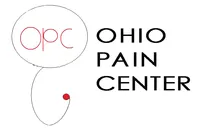Pain Management and Types of Pain: Understanding the Path to Relief
 Pain, a universal human experience, can be debilitating, affecting both physical and emotional well-being. Effective pain management is essential for those who suffer from chronic pain or temporary discomfort. In this comprehensive guide, we will explore the world of pain management, the various types of pain, and the strategies employed to provide lasting relief.
Pain, a universal human experience, can be debilitating, affecting both physical and emotional well-being. Effective pain management is essential for those who suffer from chronic pain or temporary discomfort. In this comprehensive guide, we will explore the world of pain management, the various types of pain, and the strategies employed to provide lasting relief.
Understanding Pain
Defining Pain
Pain is a complex, subjective sensation that can vary from person to person. It serves as a crucial warning sign, alerting individuals to potential harm or injury. However, when pain becomes chronic or severe, it can greatly impact one's quality of life.
Types of Pain
Pain is not a one-size-fits-all experience. There are several types of pain, each with its unique characteristics:
-
Nociceptive Pain: This type of pain is caused by damage to body tissues, such as from injury or inflammation. It's typically described as a sharp, aching, or throbbing pain.
-
Neuropathic Pain: Neuropathic pain results from damage or dysfunction of the nervous system. It's often characterized by shooting, burning, or electrical sensations.
-
Chronic Pain: Chronic pain persists for an extended period, often lasting beyond the typical healing time. It can be associated with conditions like arthritis, fibromyalgia, or nerve damage.
-
Visceral Pain: Visceral pain originates from the internal organs and is often described as a deep, squeezing, or cramping sensation.
-
Psychogenic Pain: Psychogenic pain is linked to psychological factors, and it can be challenging to diagnose and manage. It may manifest as unexplained discomfort or pain.
Pain Management Strategies
Medications
Pain management often begins with medications. Over-the-counter (OTC) pain relievers like acetaminophen or nonsteroidal anti-inflammatory drugs (NSAIDs) can provide relief for mild to moderate pain. For severe pain, prescription medications may be necessary.
Physical Therapy
Physical therapy plays a crucial role in managing pain, particularly for musculoskeletal issues. Therapists employ exercises, stretches, and manual techniques to improve mobility and reduce pain.
Interventional Procedures
In some cases, interventional procedures may be recommended. These can include injections of pain-relieving medications, nerve blocks, or even permanent implants like spinal cord stimulators or intrathecal drug delivery systems.
Counseling and Cognitive Behavioral Therapy (CBT)
Psychological support is essential, especially for those dealing with chronic pain. Counseling and CBT can help individuals develop coping strategies, manage stress, and improve their overall quality of life.
Alternative Therapies
Many individuals explore complementary and alternative therapies such as acupuncture, chiropractic care, or herbal remedies. While their effectiveness can vary, some find relief through these approaches.
Understanding pain and its management is a critical step towards improving the quality of life for those affected. Effective pain management encompasses a range of strategies, from medications and physical therapy to psychological support and alternative therapies. It's important to consult with healthcare professionals to develop a personalized pain management plan that addresses individual needs.
Disclaimer:
The information on this website is provided for educational and information purposes only and is not medical advice. Always consult with a licensed medical provider and follow their recommendations regardless of what you read on this website. If you think you are having a medical emergency, dial 911 or go to the nearest emergency room. Links to other third-party websites are provided for your convenience only. If you decide to access any of the third-party websites, you do so entirely at your own risk and subject to the terms of use for those websites. Neither Ohio Pain Center, nor any contributor to this website, makes any representation, express or implied, regarding the information provided on this website or any information you may access on a third-party website using a link. Use of this website does not establish a doctor-patient relationship. If you would like to request an appointment with a health care provider, please call our office at (419)517-1351.
